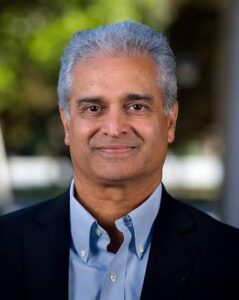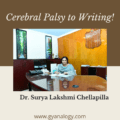To comment or receive more such wisdom, please register on www.gyanalogy.com/login

"I lead a portfolio life" is my response to the question, "What do you do now?" It invariably draws a blank stare, a puzzled nod, or a follow on question - "Are you an investor?"
A portfolio life is about doing different things that give you fulfilment, anchored by the troika of Purpose, Community, and Well-Being (mental and physical).
Now that I am the master of my time (at least more than when I was working), I can do different rewarding activities. I completed a learning design course and am now creating skill-based courses for a community college in India. Some mornings are spent working on an article about dogs or life design. If there is no rain, I play a round of golf or watch the sunrise as I cycle along the East Coast Park. I have just completed my book - a travelogue written from my dog's point of view titled "Angel Wings, Pawprints on three continents."
This is my post-career life - the one I want to lead till I die, the one that will be most rewarding and fulfilling.
The most critical driver of a portfolio life is a sense of purpose. I discovered mine during a Design Your Life workshop two years ago. I love being able to help others by being a mentor or teacher. That is why I became a Designing Your Life coach, why I build course content for skills development, why I blog about my thoughts and ideas, why I have set up a service to help people who are stuck or are in transition.
I transitioned from a corporate executive to an entrepreneur and a coach, and a writer.
With this background in mind, let me take a stab at answering some of questions an author like me gets asked often.
Did you always want to be an author? How did the transition to the literary world happen?
I never wanted to be an author. Growing up, I hated writing essays, and in my career, I was proud of the brevity in my emails. However, I could tell stories. My business presentation always had a storyline. Things changed when I began penning a blog in the summer of 2017. My wife, my dog, and I had embarked on a road trip across the US. We were driving from Palo Alto, California, to Maine and back- a 10,000 mile trip in two months. We had started a blog about the journey. I was the writer, and my wife was the photographer. Our followers loved the blog. We all know what happens when you get kudos for something. You believe you have a talent that needs honing, and so the writer in me was born. We were in a program at Stanford University, where I enrolled in creative writing classes. They helped me learn the basics of writing and story structure and all that. I still don't claim to be a writer, but I can string together a coherent and compelling story.
Did the IIM education help you in any way in my writing pursuits? What do you usually write on? What is the purpose of your writings?
The IIM curriculum prepares students for the business world. It is not designed for creative expression. An article in a marketing magazine was my only contribution to the literary world during my 30-year career. That has changed in the last two years. I now write articles about dogs and life and career design- topics that are close to my heart. I write because I enjoy it. The creation process is liberating - when you are banging out the words without restricting your thoughts. The editing process needs discipline. The challenge to help readers visualize your story is energizing.
I write about resilience, staying relevant, developing a growth mindset, and dogs. Hopefully, my musings will help readers think about designing a future that is fulfilling.
What advice do you have for budding writers? Can one make a living off writing? What are the challenges for a first-time author?
I don't think I am in the position to advise budding writers. However, I can talk about what I learned on the journey. My top 5 takeaways are -
- Writing is hard work. I finished the first draft of my book - 42,000 words in November 2018. It meant writing about 1200-1500 words per day. That takes about 2-3 hours. It needs a ton of discipline.
- Your material has to be interesting to readers. You should always ask yourself the question, "So what?" What does this do for my reader?
- Each story has a narrative arc. It takes the reader up and down, slow and fast, left and right. Kurt Vonnegut called it "The shape of a story."
- Use apps to write. My favorite ones are Grammarly and Hemingway Editor.
- Show your final draft to someone else for feedback. I revised my "final draft" at least five more times.
"Can one make a living by being a writer?"
It is a tough question to answer. It's about a lifestyle choice. If writing generates enough money to enjoy the lifestyle you want, then the answer is obvious. If not, then you should look for alternate income streams.
The biggest challenge for a first-time author is devoting time to write. A journalist friend once told me, "Although I write for a living, I struggle to find time to write my book. The only thing that helps me is my publisher's phone calls that remind me about deadlines and keep pushing me to complete my manuscript." Every writer needs a certain amount of uninterrupted time to devote to their manuscript.
What skills did you develop that have helped you over the years?
Resilience is a critical skill that I developed over the years. It has to do with optimism, problem-solving capability and staying relevant. I repeatedly questioned my skills and the ability to monetize them. I always stepped out of my comfort zone and tried my hand at unfamiliar things.
What is something you wish you knew earlier in your life?
I wish I knew that you should not stop being curious. A healthy curiosity is good for the brain and overall well-being.
What does happiness mean to you?
Happiness is a state of mind. It is about your physical and mental well-being, your relationships, and knowing yourself. It is an understanding of what gives you joy and fulfilment.
You can read more about what it means here.
(this is not a shameless plug for my blog!)
What advice would you have for people reading your story?
Develop a "Growth Mindset" - one of continuous learning and trying different things that give you satisfaction. Always find time to indulge your passion even if it does not pay. If you are one of the fortunate ones who have a passion for your job, then excel at it. If you know your purpose, definitely use it to bring good to others. Build quality relationships, not hundreds of followers on LinkedIn or Facebook. Overall, be curious and try more things. Build failure immunity.

Abhijit Patwardhan is the Founder and CEO of Alt-Lyf, a social enterprise in Singapore that enables individuals of all ages to prototype their alternate lives- using workshops, online training, coaching, and Alt-Lyf Labs. He has worked for over three decades in the consumer goods and tech industries and held senior leadership roles across Asia-Pacific in Hewlett-Packard and Lexmark. He holds a Mechanical Engineering degree from the University of Pune and an MBA from the Indian Institute of Management (IIM), Bangalore.
To comment or receive more such wisdom, please register on www.gyanalogy.com



